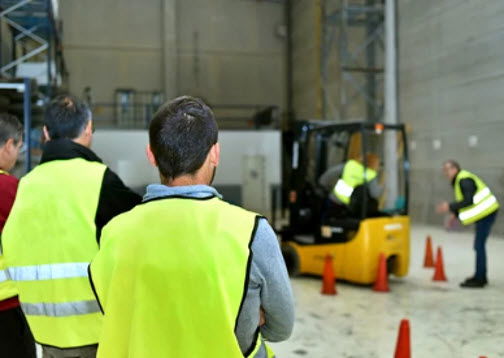Secrets Behind Singapore’s Forklift Test Struggles
Singapore’s logistics industry relies on skilled forklift operators, yet 70% of trainees fail their initial certification test, impacting umw career opportunities and warehouse efficiency. This high failure rate stems from technical deficiencies, limited practical skills, and industry-specific challenges. This article explores five key reasons for these failures and how umw Singapore is implementing innovative training solutions to improve success rates and prepare operators for the competitive logistics sector.
1. Overcoming Technical Knowledge Barriers
Many forklift trainees in Singapore underestimate the technical expertise needed to operate electric forklifts for sale, leading to frequent certification failures. Unlike driving a car, forklift operation requires mastering load stability, weight distribution, and safety protocols critical for storage racking systems. This lack of understanding causes struggles in both written exams and practical assessments, contributing to the high failure rate in forklift Singapore tests.
Electric pallet jack Singapore training emphasizes battery-operated equipment like power pallet jacks and electric pallet trucks, requiring knowledge of battery maintenance and troubleshooting. Trainees often lack familiarity with advanced models like umw toyota forklifts, which feature sophisticated safety systems. This technical gap hinders their ability to operate equipment safely and efficiently in demanding warehouse environments.
UMW engineering enhances forklift training with comprehensive modules providing detailed resources on equipment mechanics and safety protocols. These programs include interactive sessions to ensure trainees understand powered pallet trucks and other equipment thoroughly. By addressing these knowledge gaps, umw Singapore improves certification success and equips operators to meet the logistics industry’s demands.
2. Addressing Limited Practical Experience
Insufficient hands-on practice is a significant barrier for forklift trainees in Singapore, as many forklift courses offer limited time for skill development. Operating used reach trucks in high-density storage racking systems requires muscle memory and spatial awareness, skills that demand extensive practice. Without adequate practice, trainees struggle to demonstrate precision during certification tests, leading to frequent failures.
Navigating tight warehouse aisles with a powered pallet truck or pallet stacker requires precise control, challenging for those with minimal experience. UMW career programs offer extended practical sessions with experienced instructors providing real-time feedback in simulated warehouse settings. These sessions build confidence in handling complex maneuvers, reducing test failures in forklift training programs.
UMW Singapore integrates advanced simulator technology into its forklift course, allowing trainees to practice challenging scenarios without risking equipment damage. These simulators replicate real-world conditions, such as navigating narrow spaces or handling diverse loads, enabling skill development. By increasing practical exposure, umw engineering ensures trainees are prepared for certification and warehouse operations.
3. Handling Complex Equipment Challenges
Modern forklifts, such as those in the toyota forklift Singapore range, pose challenges due to their advanced safety systems and digital controls. Electric forklifts for sale require understanding battery management and troubleshooting, areas where trainees often lack expertise. This unfamiliarity leads to errors during practical assessments, contributing to the high failure rate in forklift certification tests.
Forklift training programs now include specialized modules on electric pallet trucks and power pallet jacks, focusing on operational nuances and safety features. UMW career initiatives provide detailed guidance on equipment-specific procedures, ensuring trainees operate advanced machinery confidently. This targeted training bridges the gap between theory and practice, enhancing performance during certification.
UMW engineering tailors training to specific warehouse environments, such as temperature-controlled facilities or high-density storage racking setups, where used reach trucks operate differently. By simulating these conditions, programs equip trainees to handle unique challenges, reducing test failures. This preparation ensures operators are ready for long-term success in Singapore’s logistics landscape.
4. Adapting to Industry-Specific Needs
Singapore’s varied warehouse environments, from temperature-controlled facilities to high-traffic storage racking systems, require specialized training. Operating an electric pallet jack Singapore in unique conditions differs significantly from standard operations, and trainees often fail due to unfamiliarity. Industry-specific training is crucial for certification success and operational readiness.
Forklift Singapore programs, supported by umw engineering, include customized modules addressing different workplace environments. Trainees practice with powered pallet trucks and pallet stackers in conditions mimicking their future roles, such as handling heavy loads in compact spaces. This targeted approach builds relevant skills, ensuring operators meet specific workplace demands.
UMW career paths collaborate with industry leaders to develop training reflecting real-world needs, such as operating in outdoor facilities or high-traffic warehouses. By simulating these environments, programs enhance trainee confidence and competence, reducing certification failures. This tailored preparation equips operators to contribute effectively to Singapore’s logistics sector, supporting career growth.
5. Preparing for Certification Success
Aspiring forklift operators can improve their chances of passing their first certification test by taking proactive steps. Seeking additional practice with equipment like pallet stackers beyond standard forklift training provides a competitive edge. Many facilities offer extended practice sessions, allowing trainees to refine skills in realistic warehouse settings.
Studying technical aspects of electric forklifts for sale and power pallet jacks is critical. Resources from toyota forklift Singapore guides explain concepts like weight calculations and stability principles clearly. Trainees who dedicate time to these materials are better equipped for both written and practical components of the forklift course, improving their chances of success.

UMW career programs encourage researching company-specific equipment and procedures, such as those related to industrial storage racking systems by UMW, before training, building a strong knowledge base. This preparation demonstrates initiative and enhances performance during certification. By combining practical experience, technical study, and industry-specific preparation, trainees can overcome the 70% failure rate and excel in forklift Singapore certification, paving the way for a rewarding career.

